Match-fixers 'use paedophile tactics' to try to influence cricketers
- Published
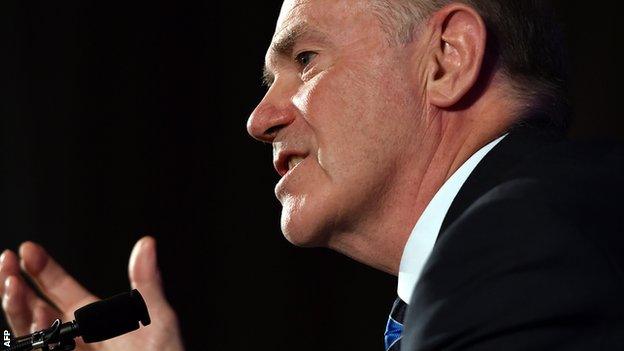
Sir Ronnie Flanagan addressed the media in Sydney on anti-corruption issues ahead of the World Cup
Cricket World Cup commentary |
|---|
Date: 13 Feb - 29 March Start: 21:45 GMT Coverage: Live commentary on BBC Sport website, BBC Radio 5 live and 5 live sports extra |
Illegal gamblers approach players using tactics employed by paedophiles, the International Cricket Council's (ICC) anti-corruption chief has said.
But Sir Ronnie Flanagan believes spot-fixers will not affect the forthcoming World Cup, which starts on 14 February.
"They're almost like paedophiles in how they attempt to groom players to whatever suits the nefarious intentions in terms of illegal betting," he said.
"We have gone to great lengths to ensure they don't get their way."
Cricket has been dogged by controversy in recent years.
Pakistan players Salman Butt, Mohammad Asif and Mohammad Amir were found guilty of corruption, external and subsequently jailed in 2011, while former Bangladesh captain Mohammad Ashraful was banned for eight years last June for match-fixing.
Flanagan, a former chief constable of the Royal Ulster Constabulary and its successor the Police Service of Northern Ireland, took over as chairman of the ICC's Anti-Corruption and Security Unit (ACSU) in 2010.
Speaking in Sydney about plans to prevent corruption at the World Cup, he said: "We will be delivering education programmes to all the team squads reminding them of their responsibilities and reminding them of the commitment they must strictly adhere to throughout the tournament."
He said players still had the trust of the ICC but added: "In our line of work, we too often meet and know that there are rotten people out there, criminal people out there, who will do all in their power to connect to players and others of influence in the game."
- Published5 February 2015
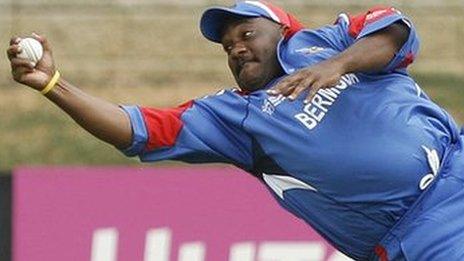
- Published6 February 2015
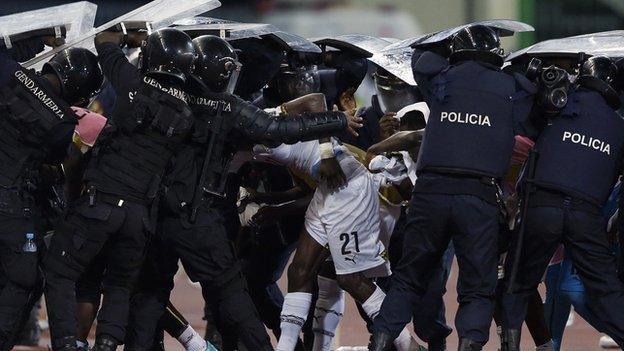
- Published5 February 2015
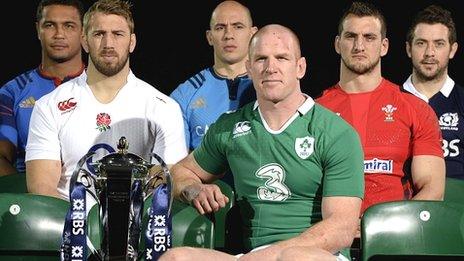
- Published9 February 2015
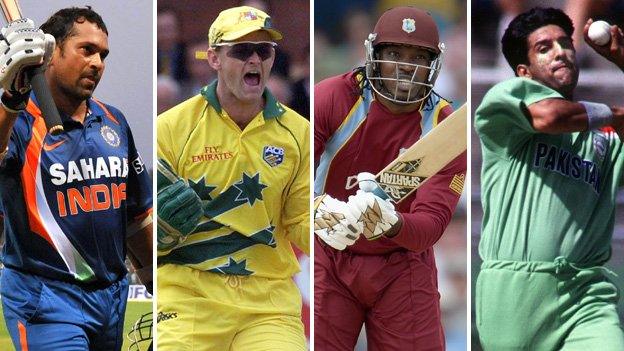
- Published15 May 2018
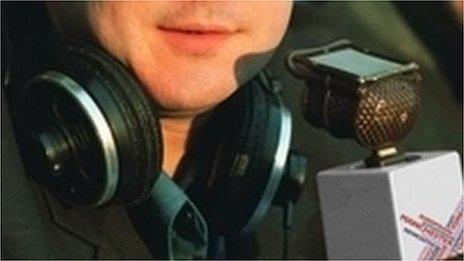
- Published18 October 2019
